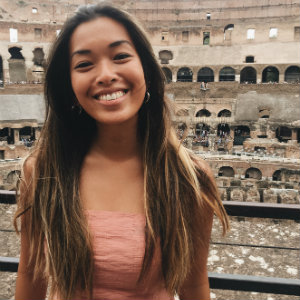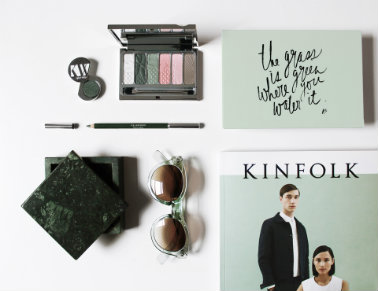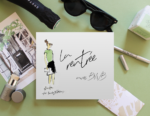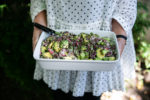
Living Organically with Carole Bamford
BWB sits down with British powerhouse Carole Bamford to see why her side of the grass is greener.
If the term “holistic living” were to be personified, one might turn to Carole Bamford as the earthly symbol. The British entrepreneur’s impressive portfolio makes it undeniable that Carole has been a champion of eco-conscious living, be it through food, fashion, hospitality or journalism. Though distinct in their modes, Carole’s four businesses – Daylesford Organic, Bamford, The Wild Rabbit and Seed Magazine – are unified under a shared value of sustainability and a responsibility to nurture and respect nature. In all her expressions of work, everything is done with exquisite attention to detail, thoughtful intention, and the big picture in mind. Carole’s vision is a comforting affirmation that holistic living does not demand a compromise of quality.

What awoke your eco-consciousness?
I think it has been a combination of various experiences, but the fact that I grew up in the 1950s played a huge part in influencing the way I live. I grew up during a time when food was still rationed, so we had to make the most of what we had – and that meant looking after our land.
I’ve always been conscious of our connection to nature, but the decision to start farming organically was an instinctive and urgent one. I was pushing my daughter around the garden one day and saw my roses wilting. I spoke to the farmer next door, who told me that he was spraying Roundup – a strong herbicide containing toxins that I later found out was actually the cause of my roses dying.
There needed to be an immediate change.
Not long afterwards I had the opportunity to meet an organic farmer who explained to me what being organic meant. It brought about a stark realisation that industrial farming, with its chemicals and pesticides, wasn’t right. It wasn’t the right way to grow food for my children and it wasn’t right for the earth. There needed to be an immediate change: We had to raise our animals and grow our crops in a sustainable and natural way, and that meant farming organically.
Which environmental issue is closest to your heart at the moment?
The issue that has always been at the heart of Daylesford and Bamford, as well as where so many current environmental problems begin, isthe health of soil. Today’s farming and food systems are degrading and depleting it to the point of no return. Over half of the world’s soil has currently been stripped of its nutrients and the continued existence of plants, animals and our vital pollinators is under threat. Soil has the potential to help mitigate climate change by absorbing our carbon emissions, and yet we are not nourishing or building its fertility, and we are certainly not discussing the problem enough to make the urgent changes that are needed.
What are some ways you’ve incorporated sustainability efforts in your day-to-day life?
I think I have always been aware of the need to live consciously and in harmony with nature, but of course it’s not always achievable in every aspect. Modern living creates habits and products that we have come to rely on, and finding sustainable alternatives is not always easy. I’m a doting grandmother, and finding things for children that aren’t excessively covered in plastic can be challenging. I’m very conscious of the issue of packaging, and that’s one of the reasons for why we’ve never had a plastic bag at Daylesford or Bamford. This year, we launched our Zero Waste Pantry at Daylesford, allowing our customers (and me as well) to bring their own containers and shop “package-free.”

For a long time, it was difficult to find cleaning products that didn’t contain chemicals and toxins that are harmful to water and to the earth’s soil, but I’m very fortunate in that we have been able to develop our own range at Daylesford so that we can own and account for our actions, ensuring that the products we produce and use are safe and responsible. Our range uses only naturally-derived ingredients and is made in the UK, meeting the highest ethical standards.
If you could suggest one thing to do or change for each of BWB’s readers to reduce their carbon footprints, what would it be?
The first thing I would say is to start small and make changes that are sustainable for your lifestyle. None of us are perfect; it is better to go slowly and make realistic swaps rather than embark on lots of big changes only to abandon them after a short time. Identify areas that are manageable for you – your consumption habits are often a good place to begin: preventing food waste, looking after our clothes to make sure they last, and buying timeless pieces.
Reconsider your food shop so that you are only buying what you need.
At Bamford, we work only with natural animal and plant fibres – they are breathable, soft, and feel beautiful against the skin, but are also durable, made to last for years, and will biodegrade at the end of their life cycle. Reconsider your food shop so that you are only buying what you need, and freeze as much as you can to prevent it going off. Bread is one of the worst culprits, yet it is so easy to slice up a loaf and stop it going stale.

How can we make a sustainable lifestyle more available to everyone?
I think it’s about education and getting the message out in the right way so that it doesn’t like preaching or something unachievable. David Attenborough’s Blue Planet BBC documentary series sent a very strong message about plastic and why it’s so vital we reduce our consumption. I think it’s about creating not just an awareness but an understanding of the consequences – this is what will help incite change on a wide scale.
Carole Bamford is the founder and editor of Seed magazine, available from selected outlets in the UK, Europe and US.
Feature photograph shot by Martin Morrell.

Originally from Los Angeles, Alicia lived in Shanghai for 11 years before moving back to the states to attend the University of Miami, where she graduated with a bachelor’s degree in public relations and minors in art and philosophy. Currently residing in New York City, Alicia applies her knowledge of strategic communication and design in her career. She enjoys painting, rugby, exploring, and more often than not, you’ll find her petting someone’s dog.






